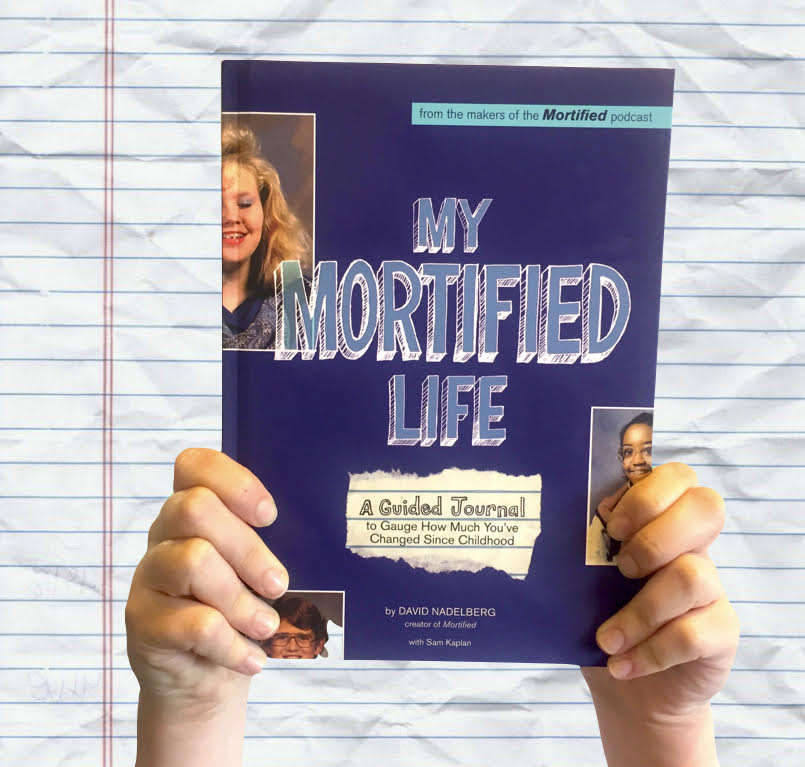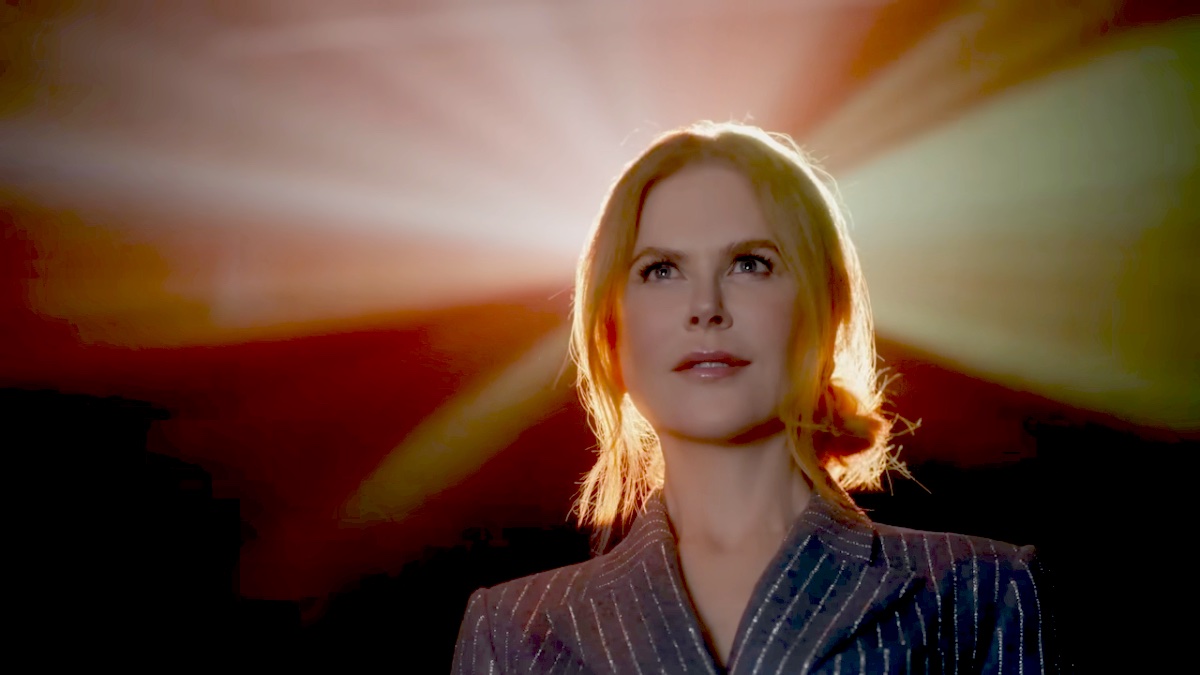Mortified is less of a series and more of a cultural phenomenon, fans say. Beginning 15 years as a stage show, which eventually grew into several stage shows including an upcoming non-English one in Holland, a Radiotopia podcast, a documentary, a television series (which is on Netflix, but not a Netflix original), and a book, founder Dave Nadelberg and his partner in all things Mortified Neil Katcher are, Nadelberg tells me, “the largest and longest running project of its kind.”
The Mortified Guide, currently on Netflix, are a perfect introduction to Mortified. Recently selected for the 2018 Sundance Film Festival, the six-episode series is separated into themes: Love and Sex Vol. 1, Family, Fitting In, Growing Up Gay, Pop Culture, and finally, Love and Sex Vol. 2. In each episode, performers read something they wrote as teenagers: diary entries, love letters, erotic fan-fiction, childhood drawings of how they imaged sex, etc. The results are hilarious, of course, but they’re also sometimes incredibly touching and lovely.
Adolescence and puberty is something that’s usually so horrendously shameful, and you really have to admire the courage it takes for some of the Mortified participants to read to a crowd of strangers their sexy Jon Bon Jovi fan-fiction or their angsty poetry. (Personally, my childhood writing becoming public is a reoccurring nightmare of mine which is why I took the route many great writers chose which was to destroy all remains.) “What the project is really about is our relationship to our adolescent selves,” says Nadelberg over the phone, “and I think a lot of us have pretty visceral relationships to who that kid was. Sometimes we hate that kid, and sometimes we love that kid, and sometimes we wanna run away from that kid. But we usually have pretty strong reactions to the person we used to be and I just like getting to explore that.” When watching or listening to Mortified, I found myself constantly putting my hands over my face in second-hand embarrassment, mostly because I could absolutely relate to the unfiltered extremes that you often can only feel as a teenager.
Considering most of the performances don’t come from professionals or comedians (Nadelberg tells me that they prioritize the story more than anything, so plenty of them are teachers, architects, designers, etc.), Mortified feels incredibly genuine and sincere. This is especially true, considering the fact that they’re a “completely, fiercely independent project.”
It’s a big leap from the teenagers who see in a lot of media, who are misunderstood because they don’t like pop music they like real literature and Talking Heads and some other cool stuff while still managing to be totally acne-free. When I bring up that I always think that teenagers in media are often way too cool, Nadelberg says, “Traditionally in pop culture, when you see a teenager who’s uncool, it’s like, this beautiful girl who trips, you know, and wears glasses—the kind of thing you’d see in She’s All That.” He does have a few favorites though and cites Freaks and Geeks, The Wonder Years, and early episodes of My So-Called Life as shows he admires.
For a show that’s all about the teenage experience, however, Mortified Guide takes some time to check in with its speakers as adults—from a former bully talking about his regret, a boy band fan finally getting to meet her crush or twins who competed for boys reflecting on their own children. As much as the humor comes from the ridiculous content in the teenage writing, we’re presented with these characters as adults identifying and unwrapping aspects that their teenage selves might’ve been oblivious to. And that’s the delight of Mortified, is it’s understanding that the teenage years, while mortifying, are important ones where we are becoming our adult selves. “I like seeing how similar we are,” says Nadelberg. “I think it’s fascinating to see how totally unalike you are, how totally different you are from the kid you were at 13. And also, what do you have in common with the kid when you were 13. Your work ethic, the way you approach your love life, the way you argue with somebody—is that the same?”
While Nadelberg tells me that Mortified is mainly for adults, it has found a teenage audience. “Through the podcast and the tv show, we’ve been getting a lot of feedback from teenagers who tell us that—they write us letters saying, ‘This made us feel less alone and less weird.'” He pauses for a second, before correcting himself, “or maybe not less weird but, ok with the fact that they are weird.” Nadelberg tells me about a woman who recently wrote him a letter, in which she describes watching the show with her daughter. “Her daughter who was watching with her said, ‘Mom, I want to tell you something—I like girls,’ and came out of the closet to her mother. And the mother wrote us, said, ‘I always knew my daughter was gay’ and it was like watching this segment together (one at the end of the pop culture episode) where this woman comes to term with her own sexuality. Funny enough, thanks to watching a TV show—a soap opera in her case— and then years later this girl’s watching TV and it kind of gave her the courage to say something to her mom and that blew us away, like those kind of letters are just pretty incredible and are not things you can plan for.”
“That was never the intent of Mortified back in the day. It’s a really great result. That’s a very rewarding result, is hearing from teenagers who say its made them laugh and helped them in some way.”

My personal favorite is the pop culture episode, which includes writer Naomi Ko giving a dramatic reading of her Harry Potter fan-fiction. Naturally, it features Drarry. When I bring it up, Nadelberg agrees it’s an amazing bit. “What I love is that she wrote it sincerely,” he says, “she wasn’t trying to make fun of the Harry Potter characters, she was really doing this with earnestness and she just wanted to be known on those fan sites.” It’s a great moment that a lot of nerdy kids will recognize, and a lot of writers likely do as well in their first attempts at putting together a melodramatic tale. It’s incredibly fun, but it’s also a glimpse at a stage in a writer’s life that’s often treated with ridicule and shame rather than delight. Watching Mortified, I get a bit sad that I got rid of all my teenage creations out of embarrassment. Why not enjoy and celebrate these things for what they were—an act of earnest creativity and expression from a stage of growth?
When I tell Nadelberg that I destroyed all my personal journals and writing so no one could ever read them, he brings up a new project. My Mortified Life: A Guided Journal, which he calls “the crystallization of what Mortified is really building up to…really getting to put this in the hands of people.” The book is filled with writing prompts about your childhood and current self “to gauge how much you’ve changed since childhood.”

“Each page is divided,” explains Nadelberg, “each entry is divided into questions about your childhood and that same question gets asked about your adulthood. So for instance, something as simple as ‘What was your favorite movie growing up, and what did you like most about it?’ and ‘What’s your favorite movie today and what do you love about it?’ and ‘What are similar about those movies? What are different about them?’ But it can be something like, ‘What is the biggest fight you’ve gotten into while growing up? Who was it with and how long did that fight last? And what was it about? Why did it resolve? Did it resolve? And then flashing forward into your adulthood, like, ‘What’s the biggest fight you’ve gotten into in the past year?'” Afterward, you rate your changes on a scale and add them up at the end to see how different you are from your teenage self. “This is the teenage journal for people who either never kept a teenage journal or destroyed theirs in a bonfire years ago,” he says.
To check out Mortified Guide you can head over to Netflix, and for podcasts, books, and more, you can check out their website here.
(image: Mortified)
Want more stories like this? Become a subscriber and support the site!
—The Mary Sue has a strict comment policy that forbids, but is not limited to, personal insults toward anyone, hate speech, and trolling.—









Published: Apr 27, 2018 11:31 am